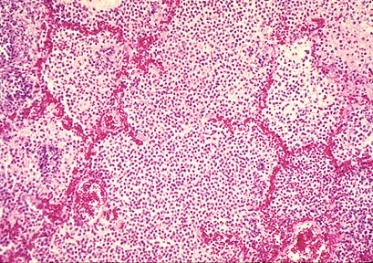Bacteria-Mediated Acute Lung Inflammation
7/9/2014
Allen, Irving C. Bacteria-Mediated Acute Lung Inflammation. Methods Mol Biol. 2013;1031:163-75. doi: 10.1007/978-1-62703-481-4_19.
Mouse models of acute lung inflammation are critical for understanding the role of the innate immune response to pathogen associated molecular patterns, bacteria, and sepsis in humans. Bacterial infections in the lung elicit a range of immune reactions, depending on the pathogen, the level of exposure and the effectiveness of the host response. In general, mice have proven to be an acceptable surrogate model organism for studying specifi c aspects of human lung pathogenesis, including localized and systemic inflammation, necrotizing pneumonia, bacteriemia, and survival. Here, we describe a highly versatile model utilizing the gram-negative bacterium Klebsiella pneumoniae . Following a single challenge with this bacterium, mice develop a robust Th1 mediated immune response and clinically relevant disease progression.
While these protocols have been optimized for K . pneumoniae , they can be applied to any gram-positive or gram-negative organism of interest.

 Respiratory System
Respiratory System





